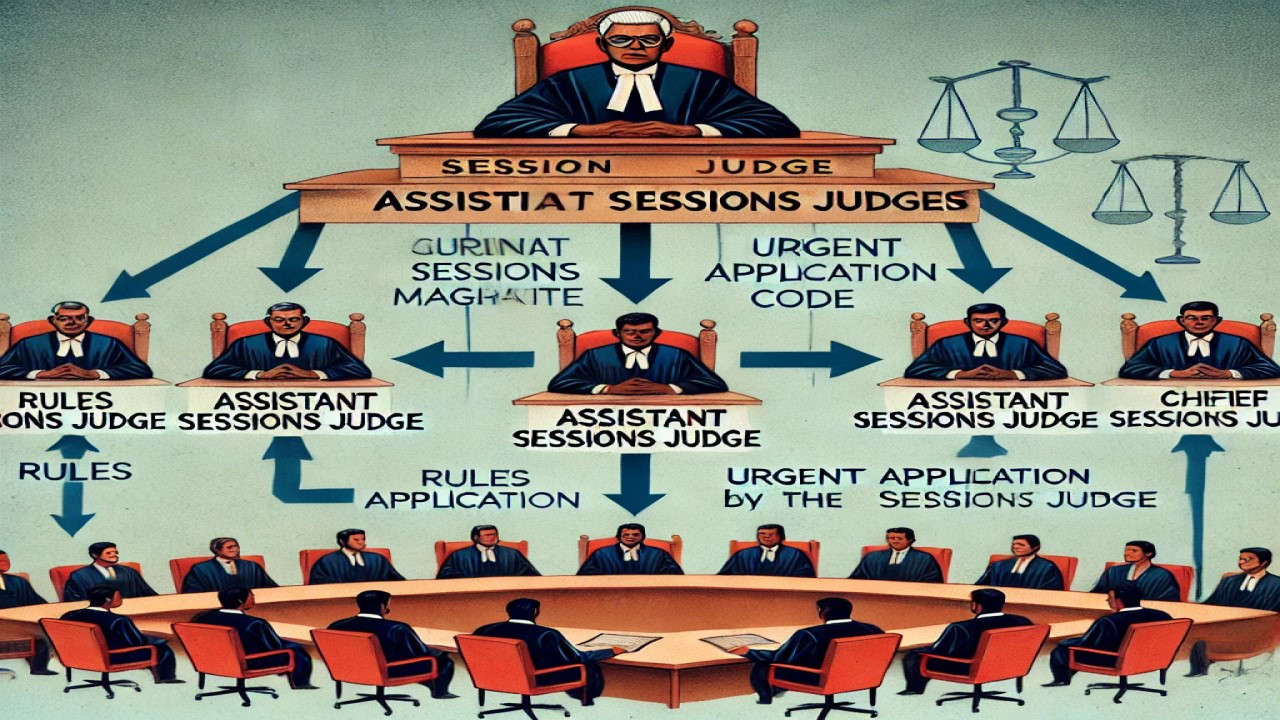Section 10 of the Code of Criminal Procedure (CrPC), 1973, addresses the subordination of Assistant Sessions Judges.
According to Subsection (1) of Section 10, all Assistant Sessions Judges are subordinate to the Sessions Judge under whose court they operate. This implies that Assistant Sessions Judges must adhere to the directions of the Sessions Judge, who also holds the authority to review and overturn their decisions.
Subsection (2) of Section 10 grants the Sessions Judge authority to establish rules, consistent with the CrPC, regarding the distribution of cases among Assistant Sessions Judges. This allows the Sessions Judge to determine which cases will be handled by the Assistant Sessions Judges and which will be heard by the Sessions Judge personally.
Subsection (3) of Section 10 empowers the Sessions Judge to make arrangements for handling urgent applications in their absence or inability to act. This responsibility can be delegated to an Additional Sessions Judge, or if none is available, to the Chief Judicial Magistrate, who will be deemed to have jurisdiction over such applications. In other words, if the Sessions Judge is unavailable, urgent matters can still be addressed by an Additional Sessions Judge or the Chief Judicial Magistrate.
Significance of Section 10: Subordination of Assistant Sessions Judges
Section 10 of the CrPC is important because it establishes a clear hierarchy within the Court of Session, ensuring that Assistant Sessions Judges remain accountable to the Sessions Judge. This hierarchy helps maintain consistency in legal procedures and ensures that all cases are heard impartially and fairly.
Notes for Judicial Exam: Subordination of Assistant Sessions Judges
Key points to remember for the judicial exam include:
- Assistant Sessions Judges are subordinate to the Sessions Judge under whose court they operate.
- The Sessions Judge holds the authority to distribute cases among Assistant Sessions Judges.
- The Sessions Judge can designate an Additional Sessions Judge or the Chief Judicial Magistrate to handle urgent applications in their absence.
Case Law on Section 10: T.V. Sarma v. A. Nagakoteshwarrao (1977 Cr. LJ 19)
In this case, the High Court ruled that only the Sessions Judge has the authority to allow an Assistant Sessions Judge to hear a bail application. Section 10 of the CrPC clearly establishes that Assistant Sessions Judges are subordinate to the Sessions Judge, and they can only preside over cases assigned to them by the Sessions Judge.
The Court emphasized that the Sessions Judge, as a higher jurisdictional authority, has the power to impose harsher penalties than an Assistant Sessions Judge. Thus, it is crucial for the Sessions Judge to maintain control over the cases that Assistant Sessions Judges handle.
The Court further ruled that while the Sessions Judge should not arbitrarily refuse to authorize a bail application to be heard by an Assistant Sessions Judge, they may deny authorization for valid reasons, such as the Assistant Sessions Judge lacking the necessary qualifications or if the case is too complex.
This case is significant because it clarifies the relationship between Sessions Judges and Assistant Sessions Judges, particularly regarding the authorization of bail applications.
